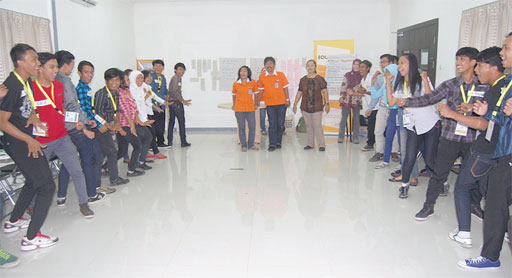Angela Parker, co-founder and President of Realized Worth, has built a profitable, $1 million revenue consulting practice helping companies like Mcdonalds, TD Bank, and even the UN with volunteering programs.

Parker approaches volunteering programs more as a corporate training function to develop leaders than as a corporate social responsibility program to meet those standards.
The following five tips for volunteering as a “means to become a better version of you.”
1. Don’t volunteer because you should – volunteer because you need to.
There is a concept the Celtics refer to as “thin space.” This is a place – maybe a sweeping vista or a striking sunset, the moment you fall in love or the moment your child is born – where there seems to be a tear in the fabric of space and time. In that space, we become clear on what really matters and why we exists. Thin spaces are few and far between but they typically take place outside our comfort zones. Volunteering can be that space. Not all the time and not for every person, but without question, the greatest value of giving time for free to another person or cause is the affect it has on the giver. When we encounter thin space we can never go back. We are transformed. Volunteering is a safe, non-threatening space where we can open up to becoming better versions of ourselves.
2. Posture yourself as ready to receive from the person you are serving. They are not objects to fix; they are your reminder of what it means to be human.
The poor are not a problem to be solved. The marginalized are not an object through whom we might address our privileged guilt. When we posture ourselves as expectant to receive the gifts “the other” has to offer, we demonstrate respect for their equal value. And when we do, in fact, receive from them, we remember our own humanity. We remember that we are all inherently valuable and worthy of equal rights and respect. It is this humble posture that leads to greater impact through the practice of transformative volunteering.
3. Make yourself vulnerable – meaning, open yourself up to attack.
True humility requires vulnerability. It requires the assumption that others may know something or have something to offer that we need. The definition of vulnerability is “to open oneself up to attack.” When you volunteer, make the decision to be as open as you can. Maybe all that means for you is you’ll step back from the constant “doing” of volunteering and have a conversation with the beneficiaries of your work. Maybe all that means for you is you’ll stop and take a look around and consider “What am I experiencing right now? Is this what I expected?” Challenge the experience of volunteering to affect you in a way it never has before.
4. For a real development opportunity, aim to connect with a people group or issue that makes you uncomfortable.
If you’re ready, go beyond the volunteering that makes sense to you and look for a little bit of trauma. Trauma is a “deeply distressing or disturbing experience.” Obviously, you don’t want to put yourself in a position that is dangerous or beyond what you can handle, but if you’ve always volunteered at the food bank, try volunteering directly with men and women who live on the street. If you’ve always volunteered in the US, try volunteering overseas (although be cautious about “voluntourism”). The point is, do something that makes you a little it afraid. Challenge your prejudices. Make sense of something that has no place in your experience of life so far.
5. Go easy.
Having said all that, volunteering can be a strange thing. Sometimes the feeling that you “should” volunteer induces guilt because you just can’t make the time at this stage of life. Sometimes the requests at work to be part of corporate volunteering initiatives feel like too much on top of personal and professional responsibilities. And sometimes you’re just trying to make it at all and “giving” to someone else feels absurd. That’s okay. Go easy on yourself. We’re all just trying to become a little bit better than the generations before us – and maybe, for once, leave an earth behind filled with greater compassion, more empathy, and less violence. We are not each responsible to change the world; we are only responsible to do that one tiny thing within our reach. Just do that one tiny thing – whatever that means for you. The rest will follow.
This article was taken from here.
